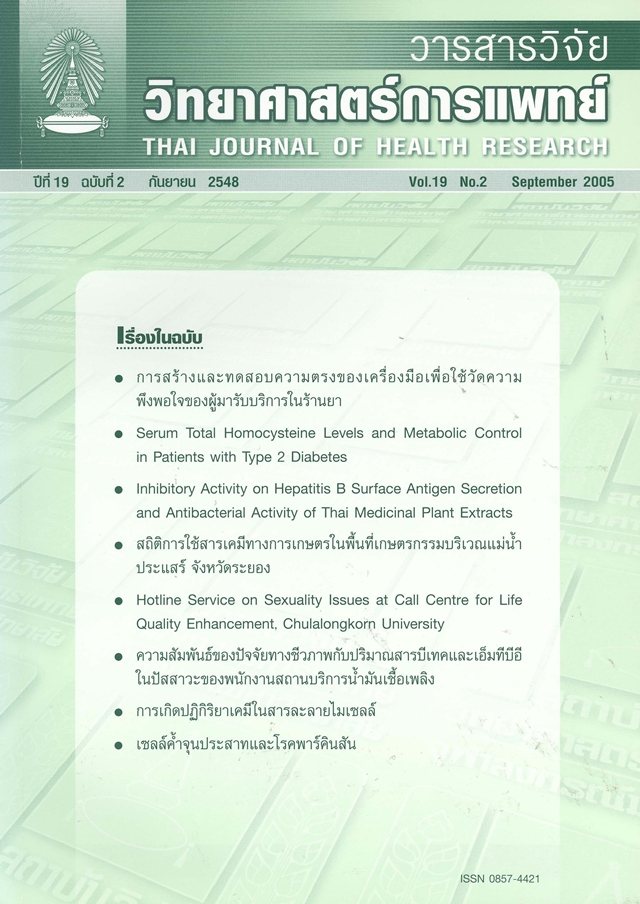Inhibitory Activity on Hepatitis B Surface Antigen Secretion and Antibacterial Activity of Thai Medicinal Plant Extracts
Keywords:
Medicinal plant extracts, Hepatitis B virus (HBV), HBsAg, Inhibitory activity, Antibacterial activityAbstract
Eleven ethanol extracts of Thai medicinal plant were investigated for inhibitory activity on hepatitis B surface antigen (HBsAg) secreted from PLC/PRF/5 cells and antibacterial activity. All samples inhibited HBsAg secretion from PLC/PRF/5 cells, calculated by IC50. The toxicity of ethanol extracts was performed and calculated by CC50. The selectivity index (SI, CC50/ IC50) of the extracts were evaluated. Two ethanol extracts, Derris scandens and Rhinacanthus nasutus, were selected for further purification with other solvents including hexane, chloroform, ethyl acetate and butanol, respectively. These fractions were further investigated for inhibitory activity and cytotoxicity. The best activity were attained by butanol extract of D. scandens (IC50 54.82 µg/ml, CC50 126.53 µg/ml, SI 2.31 and 0.09% of yield) and hexane extract of R. nasutus (IC50 126.12 µg/ml, CC50 257.87 µg/ml, SI 2.04 and 0.38% of yield). For antibacterial activity against test organisms, ethanol extracts of Caesalpinia sappan, Santalum album and R. nasutus (50 mg/ml) could inhibit the growth of Staphylococcus aureus ATCC 6538P. Hexane, chloroform and butanol extract of D. scandens (50 mg/ml) exhibited inhibition zone on S. aureus ATCC 6538P (10, 14, 11 mm) and Bacillus cereus ATCC 6548 (12, 12, 12 mm). Hexane, ethyl acetate and butanol extracts of R. nasutus (50 mg/ml) could exhibit inhibition zone on S. aureus ATCC 6538P (15, 9, 13 mm) and the extracts of hexane and ethyl acetate showed the same effect on B. cereus ATCC 6548(12, 11 mm).







